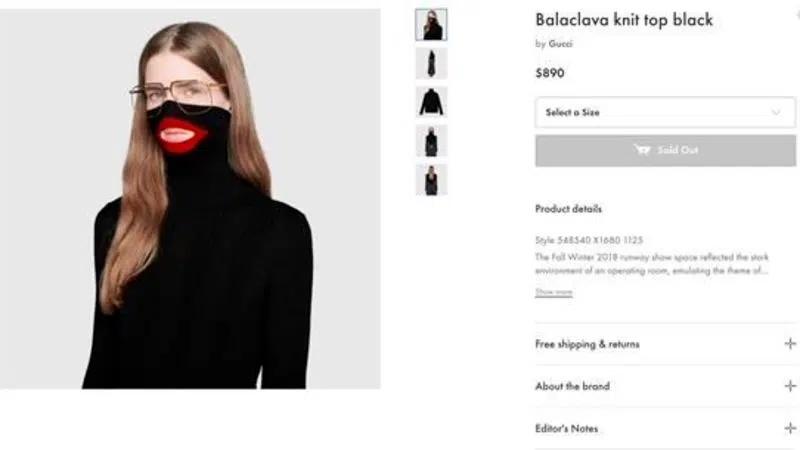
From Gucci to Prada, fashion fails evoke racist imagery
MILAN — Luxury fashion is all about breaking codes, creating a new, irresistible message that captivates consumers. But some of the globe’s top brands have raised eyebrows with designs that have racist connotations.
The latest instance of that was Italian fashion designer Gucci, which produced a black wool balaclava sweater with an oversized collar that pulls over the chin and nose. It includes a slit where the mouth is, ringed with what look like giant red lips. Its similarity to blackface prompted an instant backlash from the public and forced the company to apologize publicly late Wednesday.
Gucci also withdrew the offending garment from sale on websites and stores. It said the incident would be “a powerful learning moment for the Gucci team and beyond.”


